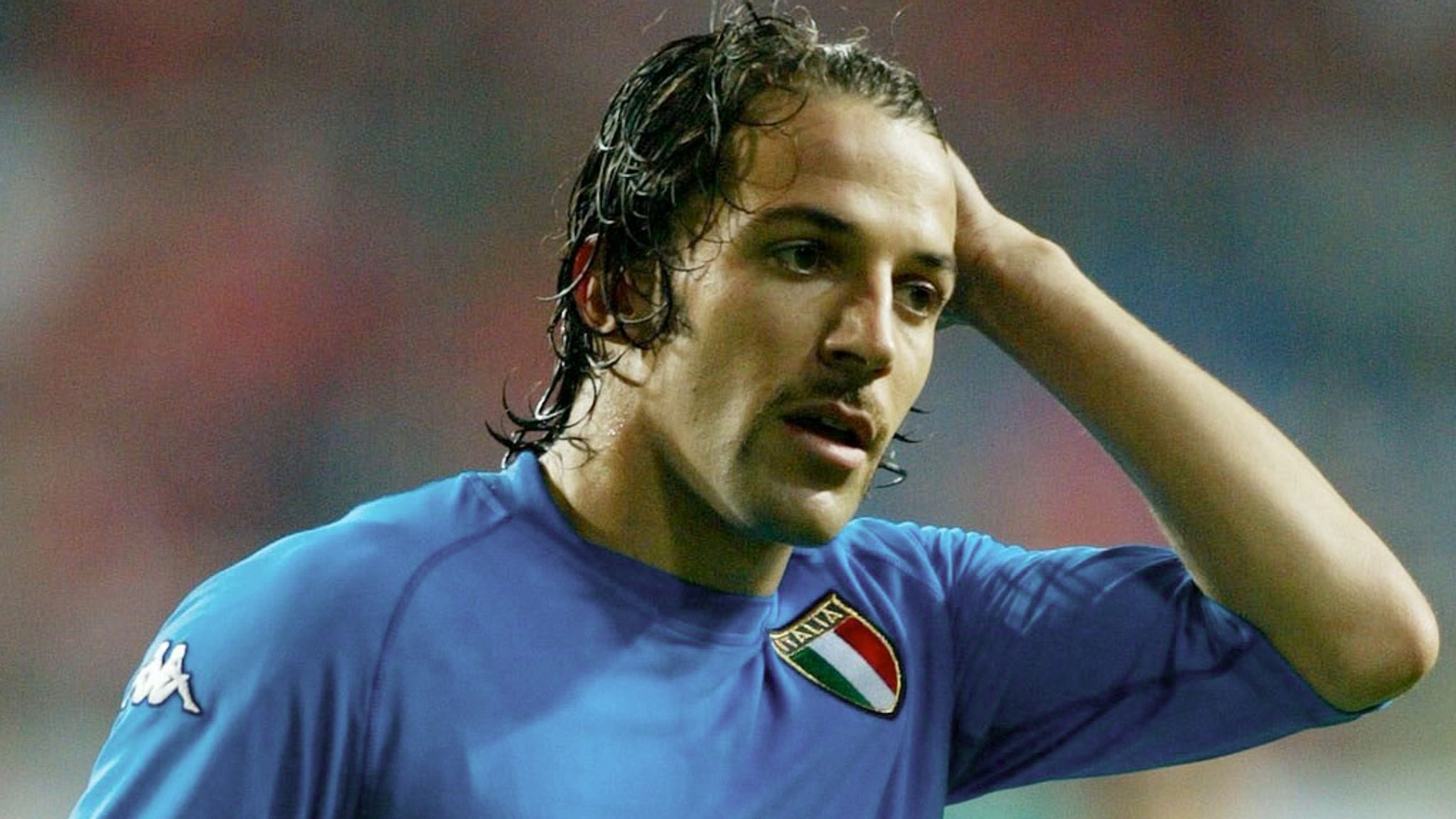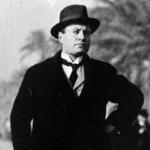Get ready to delve into the extraordinary career of Alessandro Del Piero, an Italian football icon who has captivated audiences worldwide with his mesmerizing skills and remarkable achievements. From his record-breaking goal tallies to his pivotal role in Italy’s 2006 World Cup triumph, Del Piero’s legacy as one of football’s all-time greats remains firmly intact. Let’s explore the life and career of this legendary figure, uncovering the facts and insights that have solidified his place in footballing history.
Facts about Alessandro Del Piero
Born in Conegliano, Italy on November 9th, 1974, Alessandro Del Piero’s journey to footballing stardom began at a young age. His professional debut for Juventus in 1993, at just 19 years old, marked the beginning of an illustrious career that would see him become one of the club’s most iconic players.
Del Piero’s exceptional talent quickly shone through, and he soon established himself as a key figure in the Juventus lineup. His ability to effortlessly glide past defenders, his pinpoint accuracy in passing, and his clinical finishing made him a nightmare for opposing teams.
Del Piero’s loyalty to Juventus is almost as legendary as his playing style. He spent 19 seasons with the club, a testament to his dedication and commitment. And the fans loved him right back! He became a symbol of the club, embodying its spirit and determination.
But Del Piero’s brilliance wasn’t confined to club football. He also shone brightly on the international stage, representing Italy with pride and distinction. His 91 appearances for the Azzurri (that’s the Italian national team, for those not in the know!) were marked by moments of individual brilliance and crucial contributions to the team’s success.
Even after hanging up his boots, Del Piero’s impact on the world of football continues to resonate. He’s respected as an ambassador for the sport, his insights and opinions highly valued. He’s also involved in various charitable endeavors, using his platform to make a positive difference in the world.
What was Del Piero known for?
Alessandro Del Piero, often hailed as one of the most elegant and skillful footballers of his generation, possessed a rare combination of technical brilliance, tactical awareness, and an eye for goal that made him a true maestro on the pitch.
One of Del Piero’s most remarkable attributes was his exceptional ball control. It was like the ball was glued to his feet as he danced past defenders with an almost balletic grace. His close control allowed him to navigate tight spaces, create scoring opportunities for himself and his teammates, and dictate the tempo of the game.
And then there were those free kicks. Del Piero was renowned for his ability to bend the ball with astonishing precision, often sending it curling over the wall and into the back of the net before the goalkeeper could even react. His free kicks were a spectacle in themselves, a combination of power, accuracy, and an almost artistic touch.
But Del Piero wasn’t just about individual brilliance. He was a true team player, a leader on the pitch who inspired those around him with his work ethic and unwavering commitment to the team’s success. He understood the importance of movement, both on and off the ball, and his tactical intelligence allowed him to exploit spaces, create opportunities, and orchestrate attacks with remarkable efficiency.
Off the pitch, Del Piero was admired for his sportsmanship, humility, and professionalism. He conducted himself with grace and dignity, earning the respect of fans, teammates, and opponents alike. His legacy extends beyond his impressive goal-scoring record and trophy cabinet; he embodied the true spirit of the beautiful game.
How many free kicks has Del Piero scored?
Alessandro Del Piero’s mastery over free kicks was legendary. Throughout his career, he scored an astonishing 52 goals directly from free kicks, a testament to his exceptional technique and ability to consistently deliver under pressure.
His free-kick prowess became synonymous with his name. Fans held their breath every time he stood over the ball, anticipating another moment of magic. His ability to curl the ball with both power and precision, often finding the top corner of the net, left goalkeepers with little chance.
While the official records credit Del Piero with 52 free-kick goals, some experts suggest that the actual number could be even higher. Record-keeping, especially in the earlier stages of Del Piero’s career, wasn’t always as comprehensive as it is today. It’s possible that some of his free-kick goals might not have been accurately documented, leaving us to wonder about the true extent of his mastery in this aspect of the game.
Regardless of the exact number, Alessandro Del Piero’s place among the greatest free-kick takers of all time is undeniable. His legacy in this regard continues to inspire aspiring footballers and captivate fans worldwide.
Did Alessandro Del Piero win a World Cup?
Yes, Alessandro Del Piero was an integral part of the Italian national team that triumphed in the 2006 FIFA World Cup, a career-defining moment that cemented his status as a national hero.
Del Piero’s contributions to Italy’s World Cup victory were significant. He scored crucial goals, including a stunning strike in the semi-final against Germany, and provided assists that showcased his vision and creativity on the pitch. His experience, leadership, and ability to perform under immense pressure were invaluable to Italy’s success.
Winning the World Cup is the pinnacle of achievement in international football, and Del Piero’s role in Italy’s 2006 triumph further solidified his legacy as one of the greatest Italian footballers of all time.
How many trophies does Del Piero have?
Alessandro Del Piero’s trophy cabinet is a testament to a career spent consistently reaching the pinnacle of club and international football. Over his illustrious career, he amassed an impressive collection of 15 major trophies, showcasing his dominance and impact on the sport.
His most successful period came with Juventus, where he played a pivotal role in securing:
- 6 Serie A titles: These victories demonstrate Del Piero’s contribution to Juventus’ domestic dominance during his time with the club.
- 1 Coppa Italia: A testament to his success in cup competitions.
- 4 Supercoppa Italiana titles: These victories highlight Juventus’ dominance in Italian football during Del Piero’s tenure.
Del Piero’s success extended beyond Italy, as evidenced by his achievements on the European stage:
- 1 UEFA Champions League title: The pinnacle of European club football.
- 1 UEFA Super Cup: A testament to Juventus’ standing among Europe’s elite clubs.
- 1 UEFA Intertoto Cup: While not as prestigious as the Champions League, this trophy demonstrates the depth of Juventus’ success during this period.
- 1 Intercontinental Cup: This victory showcased Juventus’ ability to compete against the best clubs from other continents.
On the international stage, in addition to the 2006 World Cup, Del Piero helped Italy reach the final of the UEFA European Football Championship, earning a runners-up medal.
Beyond the trophies, Del Piero garnered immense respect for his sportsmanship and gentlemanly conduct throughout his career. He received numerous accolades and awards recognizing his positive influence on and off the field, solidifying his status as a true role model for aspiring footballers.
What is Piero della Francesca known for?
While they share a similar name, Piero della Francesca and Alessandro Del Piero excelled in very different fields. Piero della Francesca was an Italian painter of the Early Renaissance, active in the 15th century. He is renowned for his serene and meticulously crafted paintings, which often incorporated complex mathematical principles, particularly in his mastery of perspective.
Della Francesca’s works are characterized by their:
- Serene and Harmonious Compositions: He meticulously arranged figures and objects within balanced and symmetrical compositions, creating a sense of peace and tranquility in his paintings.
- Mastery of Perspective: Della Francesca was a pioneer in the use of linear perspective, a technique for creating the illusion of depth and space on a two-dimensional surface. His paintings often feature complex architectural settings and landscapes that demonstrate his deep understanding of geometry and optics.
- Use of Light and Color: Della Francesca’s paintings are bathed in a soft, clear light that emphasizes form and volume. He used color subtly and harmoniously, often employing a limited palette of muted tones to create a sense of unity and balance.
- Humanism: His paintings often dealt with religious themes, but he portrayed his figures with a naturalism and humanity that reflected the humanist ideals of the Renaissance. His figures are often depicted in moments of quiet contemplation or interaction, their emotions subtly expressed through gesture and expression.
Piero della Francesca’s innovations in perspective and his serene, harmonious compositions had a significant influence on the development of painting in Italy and beyond. His works continue to be admired for their beauty, technical brilliance, and timeless appeal.
Did Del Piero win the Ballon d’Or?
While Alessandro Del Piero’s name is often mentioned among the greatest footballers of all time, he never received the prestigious Ballon d’Or award, given annually to the world’s best male player.
Del Piero came closest in 1995 and 1996, finishing in the top ten of the voting both years. Despite not winning the award, Del Piero’s impact on the game and his standing as a legend of the sport remain undisputed.
The fact that he never won the Ballon d’Or has sparked debate among fans and pundits alike. Some argue that his consistency, longevity at the highest level, and impact on both club and international football merited at least one Ballon d’Or award. Others point to the era in which he played, which featured a number of other exceptional players who may have overshadowed his achievements in the eyes of some voters.
Ultimately, while the Ballon d’Or is a prestigious individual accolade, its absence does not diminish Del Piero’s legacy. His contributions to football, both on and off the pitch, have earned him a place among the game’s true icons, regardless of individual awards.
For more fascinating facts about iconic figures, check out these articles:

















2 thoughts on “Unveiling the Legend: Facts About Alessandro Del Piero”
Comments are closed.